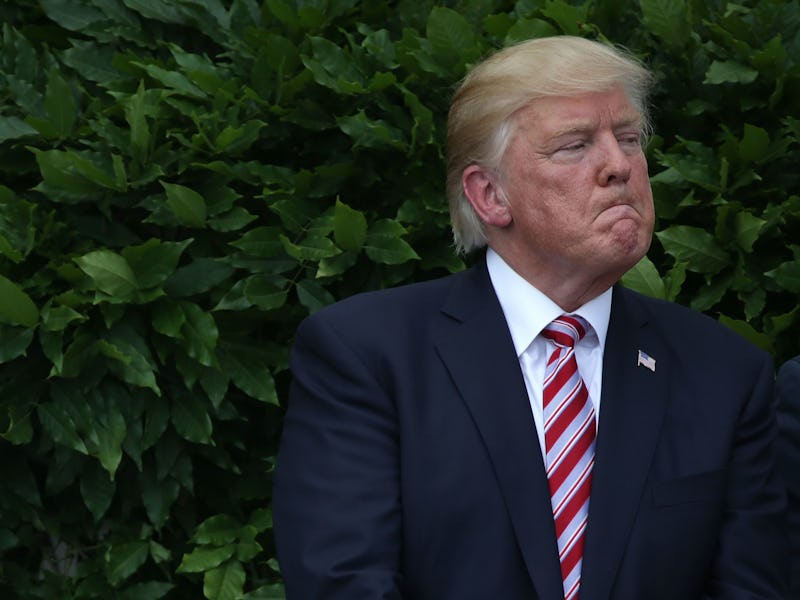Influencing an Election Costs as Much as the President's Annual Salary
Destroying a journalist's career costs less than a Tesla Model S.

The prospect that states could weaponize information via fake news at-will remains terrifying — chiefly because it will likely happen again — but a new applies a price tag. It turns out that tipping a political issue costs about the same as paying the president’s salary for a year, or maybe buying a so-called “McMansion” in the suburbs: $400,000.
Cyber-security research firm Trend Micro reveals in a report released Tuesday that the Chinese, Russian, and American markets each present unique opportunities for would-be fake news influencers.
According to the report, titled The Fake News Machine: How Propagandists Abuse the Internet and Manipulate the Public, these highly available services have such a wide reach that they don’t have to perform particularly well on a per-viewer basis in order to make a big impact.
“Even a 1 percent turnout from a reached audience of around two million from a desired or targeted region, for instance, can still have an impact,” the report found. “The key ingredient required to make the campaign a success: fake news fabricated as truth that panders to its audience’s ideologies and promises an illusion of the future — enough to compel people to join an imagined cause.”
How an operator employs or abuses underground, gray, and legitimate marketplaces to disseminate fake news
For instance, Trend Micro reports that discrediting a journalist can cost as little as $50,000 through false factual articles on third party sites, consistent social media trolling, and never-ending streams of negative comments on articles. That’s what happened to Mexican journalist Alberto Escorcia, but the report also notes that cartel-controlled Twitter bots have become a routine, ongoing problem for Mexican reporters. The Mexican drug cartels most definitely make more than the “POTUS,” year over year.
If that’s not worrying enough, consider the finding that it could cost as little as $200,000 to disseminate and support a fake story that sparks a major street protest. That’s the estimated cost of pushing a message like the fake pictures of burning teepees as the Standing Rock protests last year, which led to an enormous uproar despite that the teepees still stood. This is dependent on having a hot-button issue to misrepresent, something where people already feel strongly enough that a threat could move them to action.
Of course, the most shocking figure is the one concerning electoral and other direct political meddling; the estimated $400,000 cost to “manipulate a decisive course of action” is shockingly low. Now, this isn’t to say that any large Russian effort to game the U.S. political process cost a measly 400-grand, but each individual piece of interference making up that larger campaign likely cost that much, or even less to a state with the necessary talent on retainer. In particular, the report says that Russia is the “one stop shop” for anyone looking to purchase fake news services.
The price-tag on these sorts of false fact attacks has come down to the point that they could be affordable to even small corporations and merely-wealthy individuals. It’s unlikely that anyone but a state would (for now) organize enough of these sorts of things into a single, coherent effort to swing a whole federal election, but individual companies, interest groups, and even people very often take an interest in specific pieces of legislation, especially at the state level. Tipping that sort of discussion one way, at least in the public sphere, could cost less than 0.1 percent of the Koch’s planned spending on lobbying over the next two years.
Remember: If Donald Trump wanted to push a fake narrative to influence the discussion around one of his own proposals, he could very plausibly do so with nothing more than his government salary. And there are a whole lot of people in the world who make more in a year than the President of the United States of America.